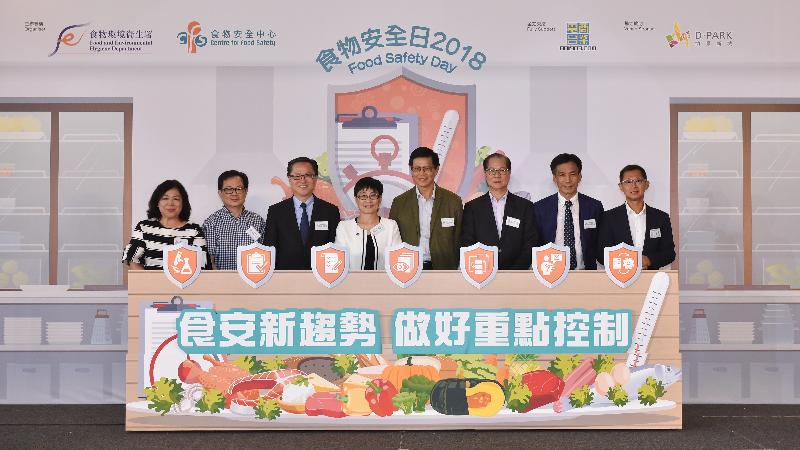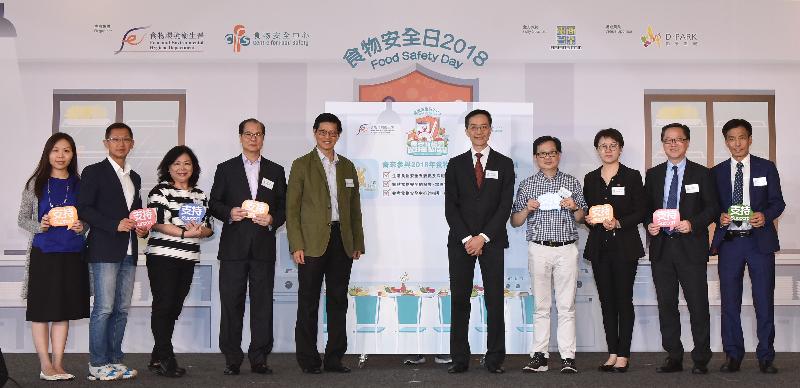HA approves revised selling prices, sales arrangements and resale restrictions for HOS Flats 2018
The following is issued on behalf of the Hong Kong Housing Authority:
The Hong Kong Housing Authority (HA) Subsidised Housing Committee (SHC) today (July 17) approved the revised selling prices and sales arrangements for the Home Ownership Scheme (HOS) sale exercise in 2018 (“HOS 2018”) as well as the revised resale restrictions for HOS.
On the basis of the new pricing policy for subsidised sale flats (SSFs) announced by the Chief Executive on June 29 and approval by SHC at a special meeting on the same day that the new pricing method should apply to the HOS 2018 flats and that additional applications should be invited, the SHC today agreed that the average selling prices of the 4 431 flats in HOS 2018 would be revised to 52 per cent (instead of the previous 70 per cent) of the then assessed market values. The SHC also endorsed re-opening the application of HOS 2018 as a continuation of the same exercise whereby eligible HOS applicants who have not applied are invited to submit applications in October. (Please see Table for the revised average selling prices of the three developments).
The Government’s new pricing policy for SSFs has only introduced two changes to the affordability test in the existing HOS pricing mechanism:
(i) using the median monthly household income of non-owner occupier households (around $39,500 currently net of Mandatory Provident Fund (MPF) contributions) instead of the White Form (WF) income limit (formerly at $57,000 net of MPF contributions) for assessing affordability; and
(ii) ensuring at least 75 per cent of flats are affordable (instead of at least 50 per cent formerly).
All other parameters under the current HOS pricing mechanism remain unchanged, including:
(i) Adopting a unified discount rate for all flats put up for sale under the same sales exercise ;
(ii) Offering a discount of 30 per cent at least ; and
(iii) Selling prices of the flats in one sales exercise should not incur loss to the HA.
All other major requirements and arrangements as endorsed by SHC at its meeting on February 14 will also remain unchanged. They include:
(i) Eligibility criteria for WF applicants;
(ii) Quota allocation between Green Form (GF) and WF applicants;
(iii) Order of priority for flat selection;
(iv) Quota for families with elderly members;
(v) Number of flats reserved for one-person applicants;
(vi) Application fees; and
(vii) Conveyancing arrangements.
“All valid applications received previously (around 150 000 as at close of application in April 2018) will continue to be valid. Unless they are withdrawn, these applications will be included in the same balloting exercise together with the additional applications received. If they choose to withdraw their applications, the application fees will be refunded,” the HA spokesman said.
Previous applicants who want to change the family composition in their applications should inform HA in writing to cancel their previous registrations. Otherwise, both the previous and newly submitted applications will be considered as duplicate applications and will both be cancelled. The application fees paid will be non-refundable and non-transferrable.
“We plan to re-open applications in October 2018, followed by balloting in November 2018 and commencement of flat selection in February 2019,” he said.
HA will provide sales leaflets indicating the revised price ranges and new resale restrictions seven days before the commencement till the end of the application period.
Sales brochures and full price lists will be available for collection by the public at the HA Customer Service Centre and on the designated websites of the three HOS developments seven days before commencement of flat selection. Successful applicants will be given access to full details of the arrangements before they decide whether to purchase when their turn for flat selection come up.
“As agreed in-principle by Members at the special SHC meeting on June 29, with the introduction of a new pricing mechanism which may give rise to higher discount rates for future SSFs launched by HA, the alienation restrictions of flats should correspondingly be tightened,” the spokesman said.
The SHC today endorsed new alienation restrictions for HOS 2018 as follows:
(i) During the first five years from first assignment from HA, the owner has to offer to sell the HOS flat to HA. HA will not buy back the flat, but will exercise the power under the Housing Ordinance (HO) to nominate a buyer, at prices stipulated in the Schedule to the HO (i.e. at original price during the first two years from first assignment; or at market price assessed by the Director of Housing less discount given during the third to the fifth year from first assignment);
(ii) HA will identify a potential nominee from successful WF applicants under the White Form Secondary Market Scheme (WSM), following their priority order during ballot. HA will also keep trying to identify a nominee from these successful applicants each year (following their priority order through balloting) until the flat has effectively been sold to the nominee; and
(iii) Alternatively, between the third to the fifth year from first assignment, the owner may continue to sell the flat in the HOS Secondary Market to both GF and WF buyers without payment of premium and at his/her own negotiated price.
“With HA exercising the right to nominate successful WSM applicants to buy from HOS owners, the new alienation restriction will in effect prevent owners from paying premium and sell their flats in open market within the first five years from first assignment from HA,” the spokesman said.
As for the WSM in 2018 which received over 60 000 applications, the Housing Department will proceed to ballot in July 2018 and aim to issue Approval Letters in October 2018 such that successful WSM applicants can apply for a Certificate of Eligibility to Purchase (CEP) within two weeks after receiving the Approval Letters which will have a validity period of 12 months.
“Approval Letters will be issued to successful WSM applicants in October 2018. Meanwhile, we will conduct the balloting for HOS 2018 in November. Successful WSM applicants will know their priority according to the balloting. Successful WSM applicants can then decide whether to use the Approval letters for purchasing flats in the HOS Secondary Market within about one year. They can also wait for the selection of HOS flats to be commenced in February 2019. By then, there will still be months ahead before expiry of the validity of the Approval Letters,” the spokesman said.
The SHC agreed to further discuss the alienation restrictions for Green Form Subsidised Home Ownership Pilot Scheme, as well as future HOS sale exercises. read more






